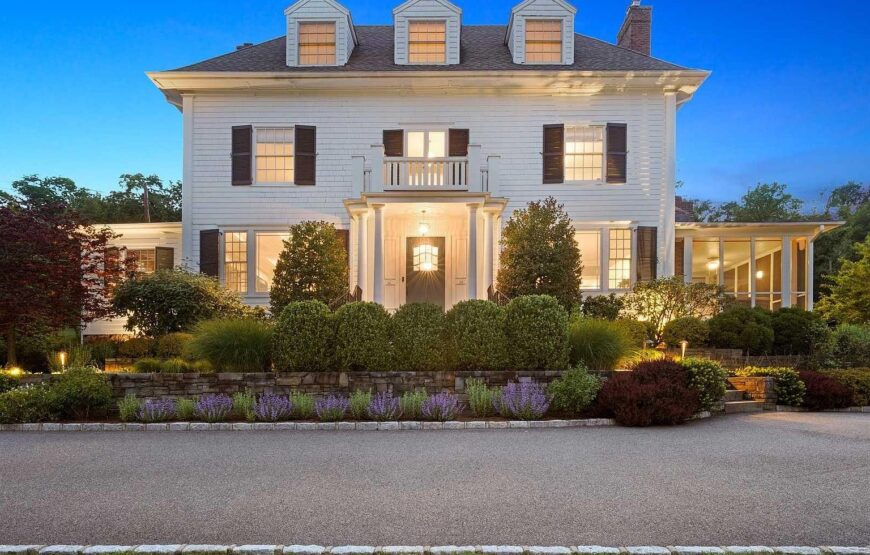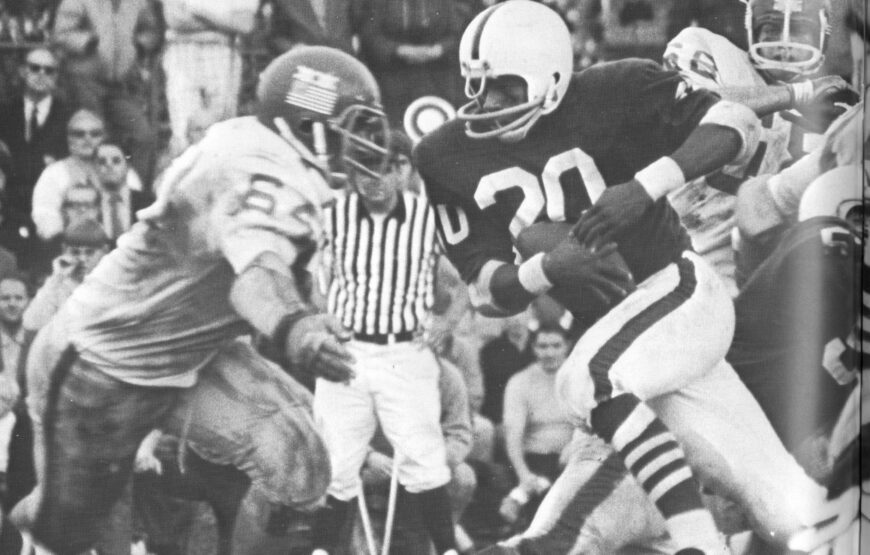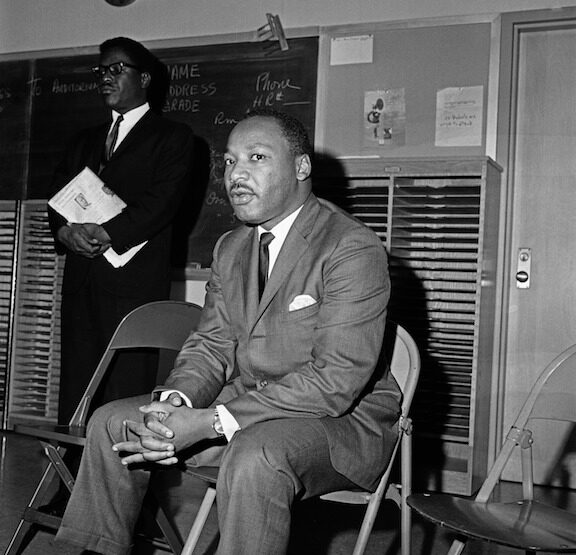Pictured above: 222 Upper Mountain Avenue, the home filmed for an exterior shot in the new Springsteen biopic.
Montclair has quietly become a hub for film and commercial shoots. From small photo shoots to big-budget films, the town offers a unique combination of charm, accessibility, and a welcoming community. Homeowners can turn their spaces into a side hustle, but it requires planning, flexibility, and a good understanding of the process.
For Montclair homeowners, film shoots are not just something you see on TV. They can happen right in your own living room. Glenn Schuster, founder of Film Friendly Locations, has spent decades connecting production companies with the perfect homes, from cozy apartments to grand estates. On many occasions, he has connected Kim Amirata, a Montclair resident, with production crews for shoots in her home.
Amirata recalls hosting a production team for the newly released Springsteen: Deliver Me from Nowhere film last year, describing the experience as both thrilling and eye-opening: “It was incredible to see the transformation of our space and to watch a scene come to life, but it also required careful planning to keep everything running smoothly.”
Together, they share what it takes to host a production, the financial perks, and the behind-the-scenes reality of life as a “film-friendly” homeowner.
Quick hits: filming in montclair
- Why Montclair? Close to NYC, diverse homes, clear permitting, and a film-friendly town.
- Homeowner fit: Best for easygoing owners; not ideal for highly fragile or cluttered homes.
- What to expect: Crew of dozens, furniture moved, rooms repurposed, equipment set up, meals served.
- Protection: Contracts and insurance cover damage, define off-limit areas, and outline setup/breakdown hours.
- Neighbors: Advance notice required; minor compensation sometimes provided for disruptions.
- Duration: Most shoots last 1–3 days; larger productions may require temporary relocation.
- Locations in demand: Homes, storefronts, apartments, unique or older spaces; accessibility matters.
- Earnings for homeowners: Small shoots: $1,500–$2,500/day, Medium commercials: $3,000–$4,000/day, Big productions: $5,000–$20,000/day
Why Montclair is So Popular for filming
Montclair’s appeal to film productions is straightforward. The town is just 12 miles from Midtown Manhattan, keeping crews within the studio zone that limits extra travel costs. Its diverse housing stock, including Norman Rockwell style homes, upscale mansions, small apartments, and unique storefronts, makes it ideal for a variety of shoots.
“Montclair is film-friendly. The town has a system where you provide insurance, pay a fee, and fill out paperwork. The police are helpful if you need anything. That kind of support makes Montclair a very good option for productions,” says Schuster.
Amirata adds, “The energy in Montclair is really welcoming. We have homeowners who are excited to show off their spaces and be part of something creative. That enthusiasm goes a long way in making productions want to return.”
are you fit to host a production in your home?
Not every homeowner is cut out for a film shoot. Homes with fragile furnishings, clutter, or a highly curated aesthetic may not be suitable. Those who are easygoing and flexible tend to have the best experience.
“You have to think of it like hosting a party with 30 or 40 strangers showing up,” Schuster says.
Amirata adds, “If you’re someone who likes a bit of organized chaos and can set boundaries without stress, you’ll enjoy it. Some homeowners tell us they didn’t expect to love the energy on set, but they do and it can be surprisingly fun.”
Hosting a film crew can be a memorable experience. Homeowners sometimes see their spaces improved after production prep or gain insider insight into the creative process. “With the right planning and attitude, it can be a win-win,” Schuster says.
What to Expect During a Shoot
Understanding the logistics upfront is key. Production crews can range from a handful to over 40 people, with equipment, catering, and props occupying multiple rooms. Homeowners can set boundaries:
“You’re allowed to say, ‘This room is off-limits,’ or specify that certain floors or furniture shouldn’t be moved,” Schuster advises.
Amirata adds, “Clear communication is everything. Ask to see the storyboard or layout so you know exactly how your home will be used. Most productions are happy to walk you through it if it makes everyone more comfortable.”
Most shoots last 1–3 days, sometimes with a prep day. For particularly invasive shoots, homeowners may temporarily relocate.
“I’ve worked on productions where families were put up in a local hotel while the crew used the entire home,” Schuster says. Amirata notes, “They make sure homeowners are comfortable with the plan before anything happens. Most are pleasantly surprised at how smooth the process can be.”
Filming can be noisy or disruptive, especially if trucks block streets or lights shine into homes. Montclair requires productions to notify neighbors in writing. Schuster adds, “Sometimes, productions give neighbors a few hundred dollars or a small gift if their driveway or street is impacted. It’s all about transparency.”
Amirata agrees: “A simple heads-up makes a big difference. Most neighbors are curious and supportive—they enjoy seeing the filming process up close.”
EARNING POTENTIAL
Amirata reflects, “Homeowners often tell us they loved watching the magic happen. It’s not just the money; it’s being part of a creative community and seeing your space transformed in ways you never imagined.”
Hosting a production can be surprisingly lucrative. Schuster shares an average breakdown on fees based on a shoot’s scale:
- Small shoots: $1,500–$2,500/day, typically for photo shoots or catalog shoots.
- Medium shoots: $3,000–$4,000/day, often for TV commercials with 30–40 crew members.
- Large productions: $5,000–$20,000/day, particularly for films with celebrities or extensive setups.
Amirata notes, “Even a one-day shoot can feel like a big windfall. Homeowners often use the money for home improvements, or even just to offset their property taxes. It’s a real bonus that comes with something you already own.”
If you’re interested in renting out your house for productions, you can reach out to Schuster at Film Friendly Locations.



